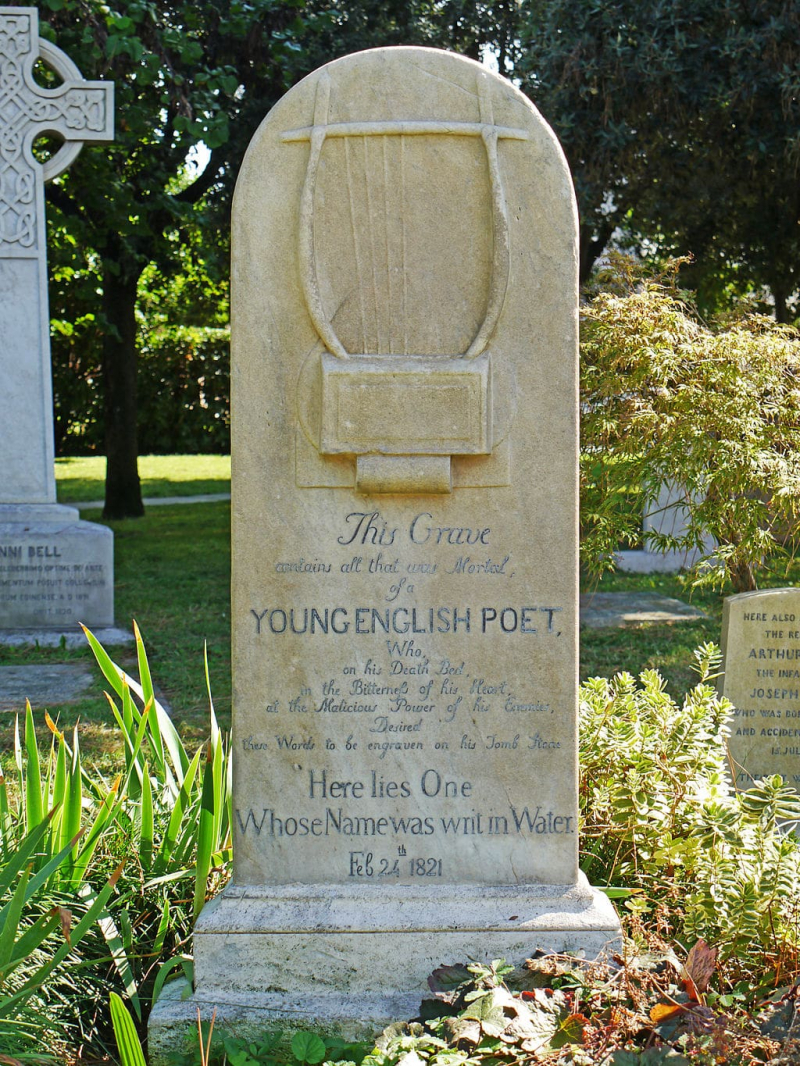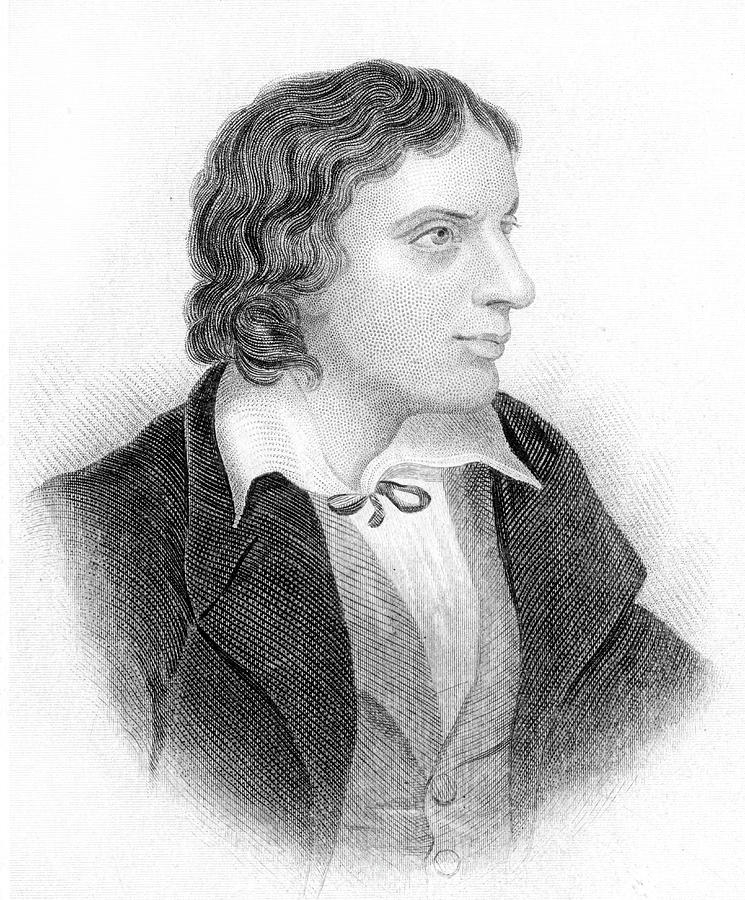He wished that his name should not appear on his tombstone
At the advice of friends and medical professionals who believed that the warmer temperature may benefit his health, Keats spent the final few months of his life in Rome. The artist Joseph Severn, a close friend who would stay with Keats until his passing in February 1921, was caring for and nursing him at this point. Keats had asked Severn for something at this point. The play Philaster by Beaumont and Fletcher, written in 1611, may have served as inspiration for the poet's decision to have only the phrase "Here lies One Whose Name was inscribed in Water '' engraved on his headstone. (All of your finer deeds will be written in water, but this one in marble.)
Thus, Keats' friends remembered him as "A young English poet'' on his tombstone at the New Protestant Cemetery in Rome. "This Grave holds everything that was mortal, of a Young English Poet, who on his DeathBed, in the Bitterness of his heart, at the Malicious Power of his adversaries, these wished lines to be Engraved on his TombStone: Here lies One Whose Name was writ in Water," reads the inscription on the tomb. Notably, Charles Brown and Severn, two of Keats' closest friends, inserted the last portion of the inscription after the line. The criticism of Keats' poems left both of them grieving and resentful.












